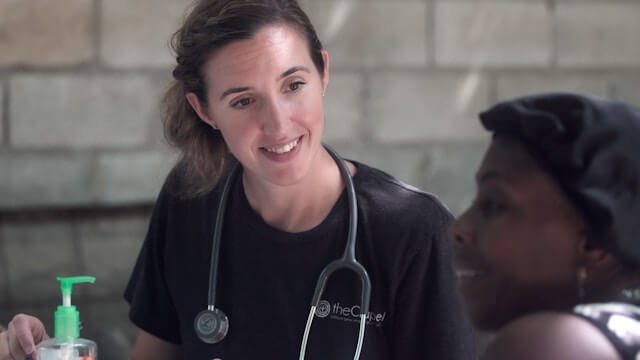The healthcare environment presents unique psychological challenges that require specialized knowledge and skills. Mental health awareness for nurses has become increasingly recognized as a fundamental component of quality patient care and professional sustainability. This comprehensive guide explores the essential aspects of mental health awareness in nursing, providing practical insights for nursing students and practising professionals.
Understanding Mental Health in Patient Care
Mental health awareness for nurses extends far beyond basic clinical knowledge. It encompasses a holistic understanding of how psychological well-being impacts physical health outcomes and recovery processes. Nurses occupy a unique position in healthcare, spending more direct time with patients than most other healthcare professionals, making them ideal advocates for mental wellness.
The integration of mental health principles into nursing practice requires both theoretical knowledge and practical application. Patients often experience anxiety, depression, grief, and trauma responses during their healthcare journey. Understanding these psychological responses enables nurses to provide comprehensive care that addresses both physical and emotional needs.
Effective nursing mental health awareness involves recognizing that mental health conditions are medical conditions requiring the same level of attention and care as physical ailments. This perspective helps reduce stigma and promotes a more therapeutic environment for all patients. Comprehensive mental health training programs provide excellent foundational knowledge for developing these essential skills.
The Connection Between Physical and Mental Health
Research consistently demonstrates the interconnected nature of physical and mental health. Chronic illnesses often lead to depression and anxiety, while mental health conditions can exacerbate physical symptoms and slow recovery times. Nurses with strong mental health awareness can identify these connections and intervene appropriately.
Recognizing Signs of Mental Distress and Trauma in Patients
Developing skills in recognizing psychological distress represents a cornerstone of mental health awareness for nurses. Many patients may not directly communicate their emotional struggles, making observation and assessment skills crucial for early identification and intervention.
Common Indicators of Mental Distress
Physical manifestations of psychological distress often include changes in sleep patterns, appetite fluctuations, unexplained physical complaints, and fatigue that seem disproportionate to medical conditions. Behavioral changes such as social withdrawal, increased irritability, difficulty concentrating, or sudden mood changes can signal underlying mental health concerns.
Verbal cues deserve equal attention in nursing mental health awareness training. Patients may express feelings of hopelessness, worthlessness, or excessive guilt. Comments about being a burden to family members or healthcare staff can indicate developing depression or anxiety disorders.
Trauma-Informed Care Principles
Understanding trauma responses is essential for comprehensive mental health awareness for nurses. Trauma can manifest in various ways, including hypervigilance, emotional numbing, flashbacks, or extremely startled responses. Specialized educational resources offer detailed guidance on implementing trauma-informed care approaches in clinical settings.
Nurses should recognize that medical procedures themselves can trigger trauma responses in patients with previous adverse experiences. Creating safe, predictable environments and maintaining clear communication helps minimise these triggers, promoting healing.

How Nurses Provide Emotional Support to Patients
The role of emotional care training in nursing education cannot be overstated. Nurses serve as emotional anchors for patients who experience fear, uncertainty, and vulnerability during their healthcare journey. Developing these skills requires intentional practice and ongoing education.
Building Therapeutic Relationships
Effective nurse-patient empathy begins with genuine presence and active listening. Patients need to feel heard and understood before they can begin to trust healthcare providers with their emotional concerns. This process requires patience, consistency, and authentic engagement from nursing professionals.
Mental health awareness for nurses includes understanding how to balance professional boundaries while maintaining therapeutic relationships. Nurses must provide emotional support without becoming emotionally overwhelmed themselves, a skill that develops through experience and proper training.
Communication Strategies for Emotional Support
Therapeutic communication techniques form the foundation of effective emotional care training. These include reflective listening, validation of patients’ feelings, and the appropriate use of silence to allow patients to process their emotions. Professional development courses offer practical exercises to develop these essential communication skills.
Nurse-patient empathy requires cultural sensitivity and awareness of individual differences in how people express and process emotions. What appears as stoicism in one patient may represent cultural norms rather than the absence of distress, while another patient may express similar levels of distress in a very different manner.
Also Read: Essential First Aid Skills for Nurses. Free Online First Aid Certification Course
Self-Care Strategies and Stress Management for Nurses
Mental health awareness for nurses must include robust self-care practices and stress management techniques. The demanding nature of nursing work creates significant risks for burnout, compassion fatigue, and secondary trauma exposure. Protecting one’s own mental health enables nurses to provide better care to their patients.
Recognizing Personal Stress Indicators
Self-awareness represents the first step in effective stress management. Nurses should monitor their own physical, emotional, and behavioural responses to work-related stressors. Common indicators include chronic fatigue, difficulty sleeping, increased irritability, social isolation, and decreased job satisfaction.
Physical symptoms such as frequent headaches, gastrointestinal issues, or increased susceptibility to illness may indicate chronic stress responses. Emotional symptoms like feeling overwhelmed, anxious, or emotionally numb require immediate attention and intervention.
Practical Self-Care Techniques
Effective self-care for nursing mental health awareness involves both immediate stress-relief techniques and long-term wellness strategies. Immediate techniques include deep breathing exercises, brief mindfulness practices, and physical movement during breaks. Specialized healthcare training programs include guided exercises specifically designed for healthcare professionals.
Long-term self-care strategies encompass regular exercise, adequate sleep, nutritious eating habits, and maintaining social connections outside of work. Professional development and continuing education, such as advanced mental health awareness programs, can also contribute to job satisfaction and personal growth.
Building Resilience in Nursing Practice
Resilience in nursing mental health awareness involves developing the capacity to adapt and recover from challenging situations while maintaining professional effectiveness. This includes cultivating emotional intelligence, maintaining perspective during difficult cases, and seeking appropriate support when needed.
Building professional support networks provides crucial resources for managing work-related stress. Mentorship relationships, peer support groups, and professional counselling services all contribute to maintaining mental wellness in nursing practice.
Integrating Mental Health into Nursing Education
The integration of mental health awareness into the broader nursing curriculum for nurses requires careful consideration and strategic planning. Mental health concepts should be woven throughout nursing education rather than confined to a single psychiatric nursing course.
Core Curriculum Integration
Fundamental nursing courses should incorporate mental health principles from the beginning of nursing education. Assessment courses should include psychological assessment techniques, while skills courses should emphasize therapeutic communication and emotional support strategies.
Medical-surgical nursing courses benefit from the integration of mental health awareness for nurses, as medical patients frequently experience psychological distress related to their conditions. Comprehensive training in mental health fundamentals complements traditional nursing education by providing a specialized focus on mental health applications across all nursing specialities.
Clinical Experience Requirements
Hands-on clinical experiences in mental health settings provide invaluable learning opportunities for developing nursing mental health awareness. These experiences should be structured to provide exposure to various mental health conditions while ensuring adequate supervision and support for student learning.
Specialized Mental Health Nursing Tracks
Advanced nursing students may choose to specialise in psychiatric and mental health nursing, which requires additional coursework and clinical experiences. These specialized tracks prepare nurses for roles in psychiatric hospitals, community mental health centres, and integrated healthcare settings.
The specialized knowledge gained through professional mental health certification programs enhances career opportunities and professional competence in mental health nursing specialities.

Evidence-Based Practices in Nursing Mental Health Care
Mental health awareness for nurses must be grounded in current research and evidence-based practices. This ensures that interventions are effective and aligned with professional standards of care.
Research Applications in Clinical Practice
Current research in nursing mental health awareness emphasizes the importance of early identification and intervention for psychological distress. Studies demonstrate that improved patient outcomes occur when nurses receive specialised training in mental health assessment and intervention techniques.
Evidence supports the integration of mental health screening tools into routine nursing assessments across all healthcare settings. These tools help identify patients who may benefit from additional mental health resources or referrals.
Quality Improvement Initiatives
Healthcare organisations are increasingly recognising the value of investing in mental health awareness for nurses through quality improvement initiatives. These programs often include staff training, policy development, and outcome measurement to ensure effective implementation.
Standardised professional training programs support these quality improvement efforts by providing consistent educational content that can be implemented across various healthcare organisations.
Addressing Mental Health Stigma in Healthcare Settings
Combating stigma represents a crucial component of effective mental health awareness for nurses. Despite growing awareness, mental health stigma persists in many healthcare environments, affecting both patients and healthcare providers.
Creating Supportive Environments
Nurses play a crucial role in creating healthcare environments that promote mental wellness for all patients. This includes using person-first language, avoiding judgmental attitudes, and advocating for appropriate mental health resources and referrals.
Professional development opportunities, such as intensive mental health training workshops, help nurses develop the knowledge and skills necessary to address stigma effectively while providing compassionate care.
Patient Advocacy in Mental Health
Nurse-patient empathy extends to advocating for appropriate mental health services and resources. This may involve collaborating with social workers, psychologists, and psychiatrists to ensure comprehensive care coordination.
Also Read: The Role of Observation in Patient Recovery and Care: A Nurse’s Guide to Clinical Observation
Technology and Innovation in Mental Health Nursing
Modern mental health awareness for nurses increasingly incorporates technological innovations and digital health solutions. These tools can enhance assessment, intervention, and ongoing support for patients with mental health needs.
Digital Mental Health Tools
Electronic health records now include mental health screening tools and risk assessment protocols that support nursing initiatives aimed at promoting mental health awareness. These tools help standardise assessment processes while ensuring comprehensive documentation of a patient’s psychological status.
Mobile applications and telehealth platforms expand access to mental health resources, allowing nurses to connect patients with appropriate services regardless of geographic location or mobility limitations.
Training and Education Technology
Online learning platforms, such as the comprehensive course at Alison, provide flexible access to mental health awareness for nurses training. These platforms enable nurses to fulfil their educational requirements while continuing to fulfil their clinical responsibilities.
Virtual reality and simulation technologies offer innovative approaches to emotional care training, allowing nurses to practice therapeutic communication and crisis intervention skills in controlled environments.
Future Directions in Nursing Mental Health Awareness
The field of mental health awareness for nurses continues to evolve as our understanding of psychological health and wellness expands. Future developments are likely to emphasise prevention, early intervention, and integrated care approaches.
Emerging Research Areas
Current research focuses on developing brief, effective interventions that nurses can implement within existing workflow constraints. Studies examine the effectiveness of mindfulness-based interventions, peer support programs, and technology-assisted care delivery models.
Professional Development Opportunities
Continuing education requirements increasingly include mental health awareness components for nurses, reflecting the growing recognition of these skills as essential nursing competencies. Professional organizations offer specialized certifications and advanced training programs to support career development in mental health nursing.
The ongoing availability of resources, such as those at Alison, ensures that nurses have access to current, evidence-based training throughout their careers.
Conclusion
Mental health awareness for nurses represents a fundamental competency that enhances the quality of patient care while supporting professional sustainability. The integration of psychological principles into nursing practice requires ongoing education, self-reflection, and commitment to evidence-based care delivery.
Successful implementation of nursing mental health awareness depends on comprehensive education, supportive work environments, and access to ongoing professional development opportunities. The specialised training available at Alison provides valuable resources for nurses seeking to enhance their knowledge and skills in mental health.
As healthcare continues to evolve toward more integrated, patient-centred care models, mental health awareness for nurses will become increasingly essential for professional success and patient satisfaction. Nurses who invest in developing these competencies position themselves as leaders in providing compassionate, comprehensive healthcare that addresses the full spectrum of human health and wellness needs.
The journey toward enhanced mental health awareness for nurses begins with recognising its importance and committing to ongoing learning and growth. Through dedication to these principles and utilization of available educational resources, nurses can significantly impact both their own professional satisfaction and the health outcomes of the patients they serve.




